What is telemarketing?
Telemarketing used to be the bane of our lives. You’d pick up the phone just as dinner was to be served, to find someone on the other end who was trying to sell us double glazing, or a local politician who was trying to increase their profile before an election (never to be heard from again once the campaign was over!). As we enter the 2020s, many businesses push telemarketing aside in favour of other, less intrusive methods of marketing such as social media marketing – but should they? Today we’re having a look at what telemarketing is, how and why businesses should make use of it.
What is telemarketing?

Telemarketing is the way in which businesses can market their goods or services through phoning people who are potential customers. It is sometimes referred to as telesales, and less frequently, telecommerce.
Generally telemarketing is unsolicited (and therefore unexpected and oftentimes unwelcome).
Challenges when using telemarketing
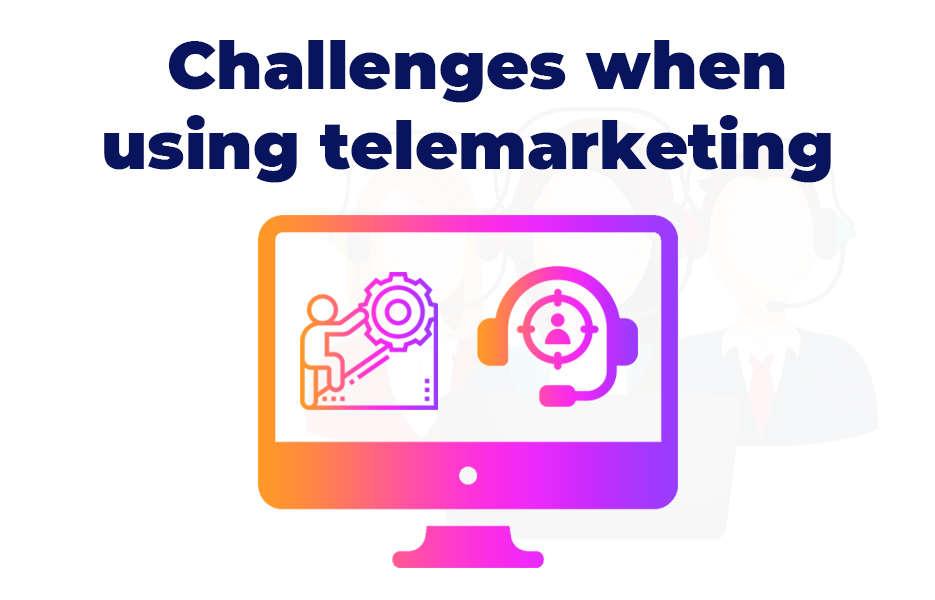
Many of us will already hold an opinion about telemarketing – and we’d bet that many people will be thinking negatively about it. Here are some of the reasons why:
- Many customers hate receiving marketing calls, especially when they are B2C customers and they weren’t expecting the call
- Segmenting your customer data to ensure you only contact customers that are happy to be contacted can be a challenge – if you’re not clear you can potentially risk breaking the law
- Buying contact lists can be expensive
- Telemarketing has a poor image due to scams carries out by criminals
- The reputation of the company may be at risk if the calls are carried out poorly
- Staffing the telemarketing campaign could be tricky – especially if changes are made to job roles
- Training your staff in telemarking can take up a lot of time
- Outsourcing telemarketing can lead to a loss of control, and a potential for damage to your reputation
Advantages of using telemarking

Although telemarketing can be thought of in an incredibly negative way, if it is done correctly it can be incredibly beneficial for your business.
- You can provide a more personalised service than in other marketing methods
- It offers businesses the opportunity to create a good impression of the company
- Offers an opportunity to tackle questions that customers might not otherwise have asked
- It can help to generate leads and appointments that can lead to conversions
- Can help increase repeat custom
- It is more efficient than making in-person sales calls (such as in B2B businesses)
- Telemarketing can be used to target existing and new customers
- It can help you reach business targets and accurately measure how successful the campaign was
Types of telemarketing
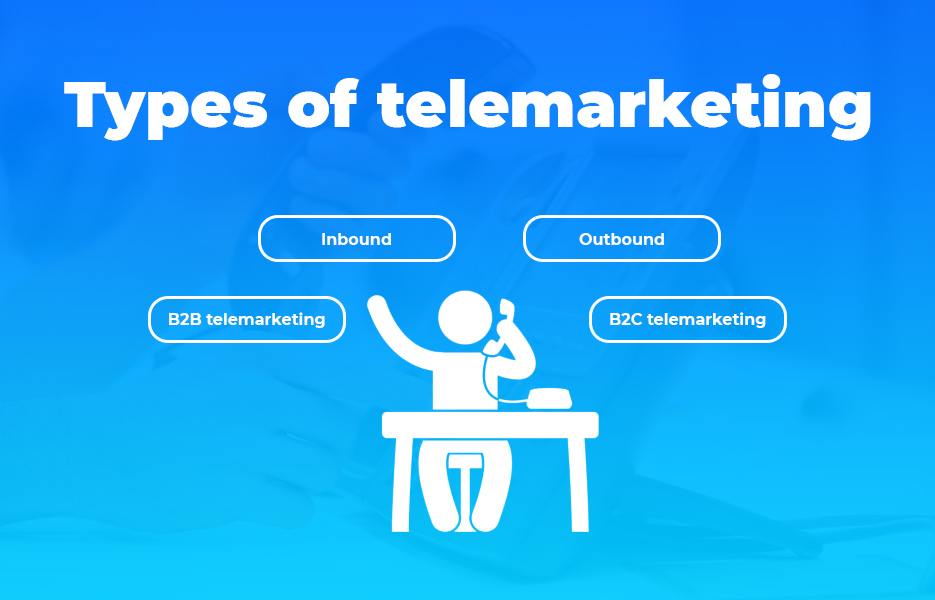
There are two main things to consider when you’re about to create a telemarketing strategy – are you going to call your customers, or are you going to encourage them to call you, and whether you are contacting B2B or B2C customers.
Inbound
This type of telemarketing is generally a lot ‘safer’, and more positive for businesses. It is often triggered through social media, email marketing or direct marketing, and consists of the business receiving incoming telephone calls from potential customers.
Outbound
Also known as cold calling, this type of call is triggered by the company. The company either uses their database of customer contact details to create their call list, or they acquire a cold prospect list. Customers don’t know they’re going to be contacted, which can lead to the customer viewing the call (and therefore the company) negatively.
B2B telemarketing
B2B (business to business) telemarketing campaigns are often a lot more successful for businesses than B2C calls. That’s because you’ll be more likely to speak with someone who is genuinely interested in what you’re offering, and there are fewer concerns about the use of data, since phone numbers for businesses are usually widely accessible on their websites.
B2C telemarketing
This type of telemarketing targets the end customer (B2C stands for business to consumer). Ideally, companies will target customers who have already identified themselves as being interested in the product or service, either by signing up for an email newsletter or by buying from the business.
Using telemarketing well
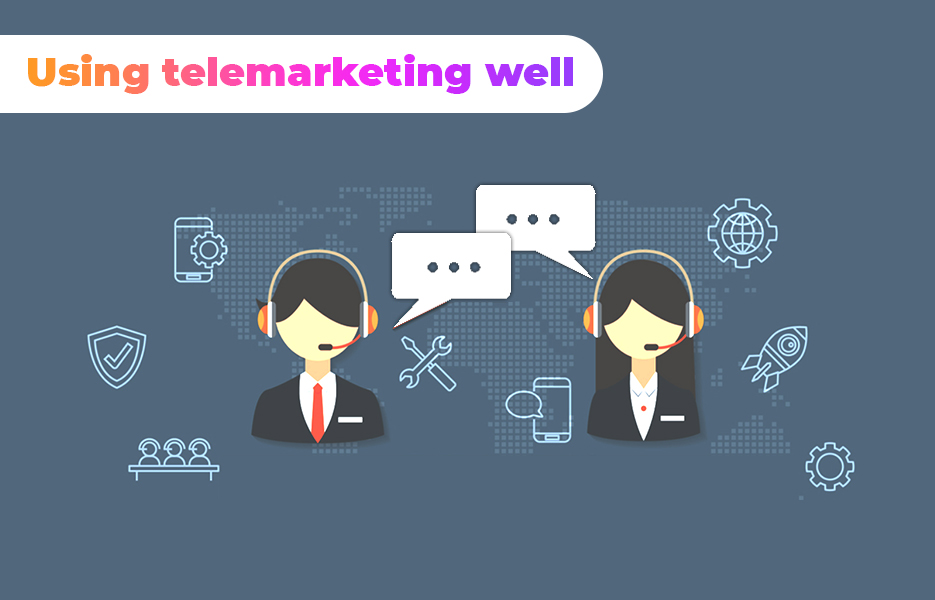
As we’ve already mentioned, there are plenty of people who dislike telemarketing. Apart from being unexpected and intrusive, there have been so many scams and irritating automated calls that the method is almost tainted, leading to businesses avoiding the practice. It doesn’t have to be that way though – and used in the right way, telemarketing can be effective, especially in B2B situations. Here are some of the main points to keep in mind if you’re planning on using telemarketing in your business:
- Always inform the customer how and why you have their information. This can help increase trust that you’re not calling them to scam them out of their life savings! If you’re calling to follow up and see how they’re getting on post-purchase, then say so up front.
- Whichever team member is making the calls, make sure they are fully briefed and that they know the range of products well. The customers that you are calling are likely to have questions! Although it might be tempting to set the newest team member, or your intern on telemarketing tasks as something easy to do, that can be a huge mistake. Give them something else to do for now, and let one of your more experienced team members take care of your call list – it will be much more effective.
- Whoever you task with telemarketing efforts, ensure they are charismatic and are a good listener. They’re going to need to create and maintain a relationship with whoever they are calling, and there are very few people in the world who enjoy the hard sell! Your telemarketing calls shouldn’t be about making a sale – at least in the initial call – so use the calls to build a positive relationship, maintain brand awareness and gain feedback and information that you can use for your business.
- Use telemarketing in the context of a much wider campaign. It shouldn’t be your only marketing strategy. Your customers will expect to see other efforts, such as social media campaigns, direct mail and so on. If you can highlight to your social media followers that you will be making calls and give them a good reason for why, your call campaign is likely to be much more successful.
- Be sure to call at an appropriate time. Not many customers are going to be happy to receive an unsolicited call in the evening when they’ve settled down with Netflix and a cup of tea!
Legal requirements in the UK

In most countries, you have to be pretty careful with telemarketing efforts, and the UK is no exception. The Information Commissioner’s Office states:
In general, you must not make marketing calls to any number listed on the Telephone Preference Service (TPS) or Corporate TPS (CTPS), unless that person has specifically consented to your calls. You can call a number if it is not listed on the TPS or CTPS and you are not marketing claims management services. So you need to screen call lists against the TPS and CTPS. You can only make marketing calls in relation to pension schemes if you meet a strict criteria. You must allow your number to be displayed.
The big concern for many companies today when it comes to the use of data is of course, the GDPR. Although you can still cold call under the terms of the GDPR, to avoid getting complaints to Ofcom, if you’re a small business it is probably a good move to avoid contacting any B2C customers unless you’ve good reason to – such as following up after a customer has made a purchase. If you have plans to do telemarketing activity with B2C customers, it is a wise idea to include telemarketing in the list on permissions you request when your customer engages with you.
Outsourcing telemarketing
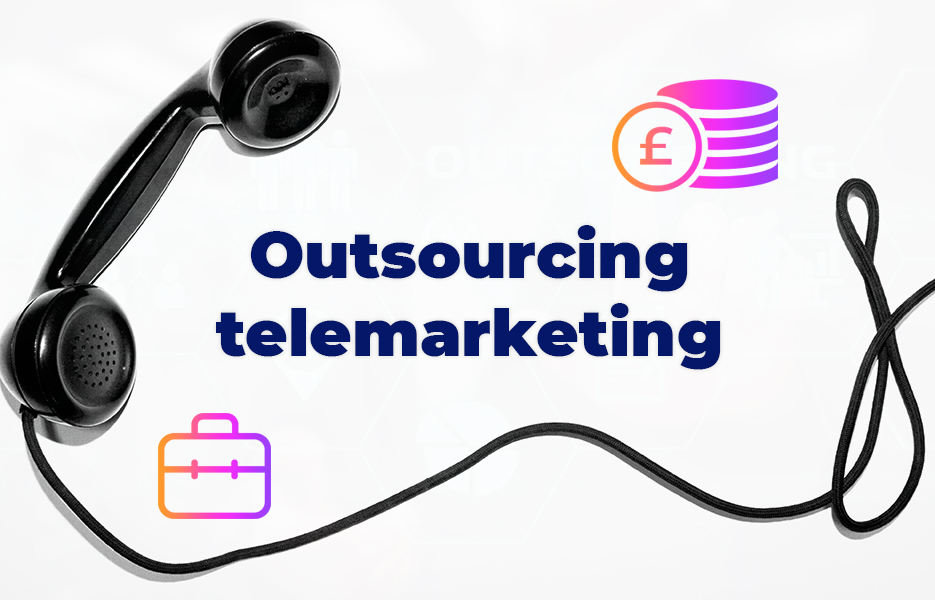
Many businesses that decide to forge ahead with a telemarketing campaign – especially an outbound campaign – do so by outsourcing it. We talked about outsourcing in much more detail in this post, so if you want to know more, head there. Now, we’ll take a look at the reasons why businesses outsource their telemarketing activities:
Cost
We’re not just talking the cost of having the right systems and equipment. If you need to pull team members from their usual duties to take part in your telemarketing campaign, other parts of your business may suffer. You could employ a specific telemarketing professional, but that will set you back upwards of £20,000.
Experience
Your existing staff could take on those calls for your telemarketing campaign, sure. But if they don’t have experience of telemarketing, then they are almost certainly not going to be as successful as a trained telemarketing professional could be. When you’re looking for the maximum return on your investment, you want the right staff for the job.
Maintaining positive brand awareness
An experienced telemarketer knows how to generate legitimate leads without relying on a script. Businesses providing outsourced telemarketing will get to know your company, and the products before they embark on their first calls, which means they will sound much more professional when they make those calls – which reflects well on your company.
Measuring the success of the campaign
Telemarketing businesses know what you’re looking to achieve and will have suitable reports and metrics that allow you to really understand how their time has been spent, and the return you’ve had on your investment. Not only that, they’ll be able to tell you upfront how successful they are likely to be, and will provide you with regular updates throughout the campaign.
Telemarketing might have a bit of a dodgy image that means you’re likely to want to leave it alone. But if it is carried out in the right way, there is no reason that it shouldn’t provide value for your business. Whether you decide to go for it with an in-house team or you outsource it, plan carefully, and be sure to evaluate your efforts regularly to get the most out of your activities.

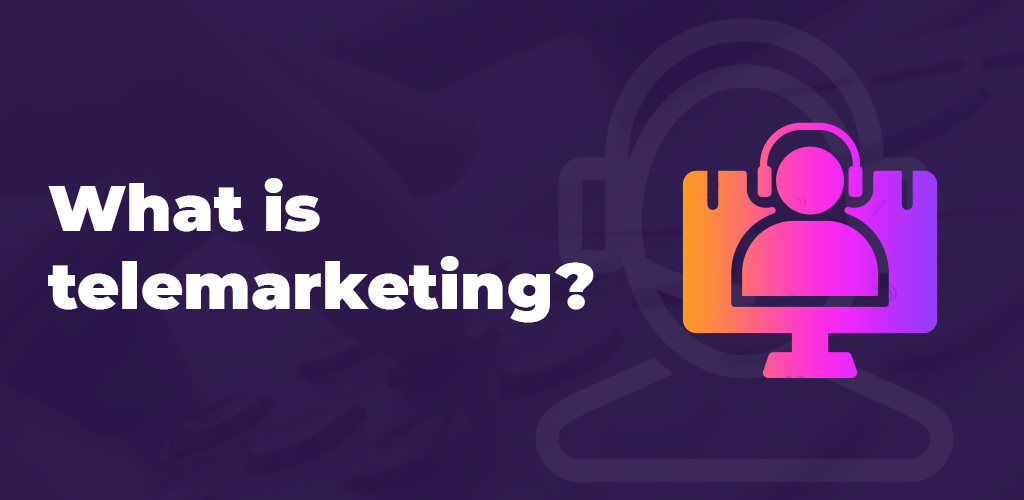


DropShip products from verified suppliers to diversify your inventory and scale your eCommerce business